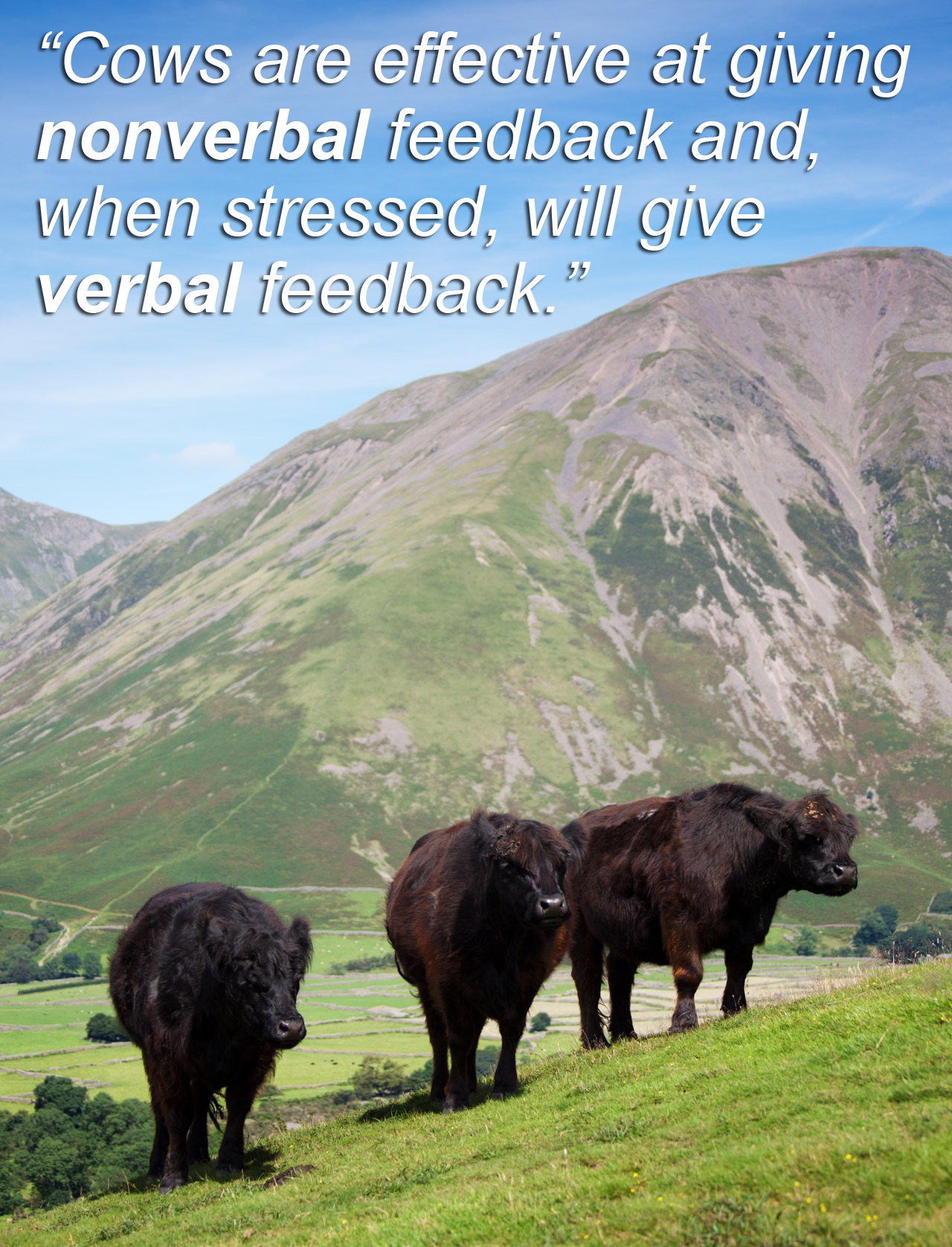Wednesday, October 19, 2016 - The 1998 movie The Horse Whisperer starring Robert Redford  hit the movie screens with a story of a man who “whispers” to horses. I have often thought of this movie and the perception that people can talk to animals.
hit the movie screens with a story of a man who “whispers” to horses. I have often thought of this movie and the perception that people can talk to animals.
Are you listening to and observing your cows in the same way? Your cows are “talking” all the time. If we listen, we can really understand how they feel at that moment and why. Consider the definition of listening, which is “understanding, receiving and interpreting behavioral processes, including verbal and nonverbal feedback.” Cows are effective at giving nonverbal feedback and, when highly stressed, will give verbal feedback.
Cows usually will talk extensively about stresses in their lives. This stress may include pain, handling, moving and separation from their calves. Producers need to listen when a cow verbalizes or bawls, as she may be under extreme stress, and we should try and alleviate that stress as quickly as possible.
A veterinarian specializing in low-stress cattle handling made a valuable statement. He said cattle are the greatest actors when it comes to health. He went on to explain that as a prey animal, the old and sick are killed and eaten in nature. This reaction is in their DNA. An example may be a steer with foot rot. We observe them limping at a distance. When challenged to be moved or doctored, that animal can run for miles like it has nothing wrong.
Cows are truly creatures of habit. They like to eat the same time of day and have the same diet day after day. Disruption of this mundane life can cause issues with their digestive tract. Good nutritionists will spend needed time in front of feed-bunks looking for any ‘sorting’ of ingredients and walk behind the cows observing the manure for signs of rumen dysfunction. Acidosis or bloat can be seen pretty quickly when observing the cows. However, subacute acidosis or other rumen issues may not be so noticeable on the outside, but the cow manure tells the story.
Cows may talk about their trace mineral status, pointing out deficiencies like poor reproduction or hair coat color, or poor production. Copper deficiency, as an example, may cause a copper-colored hair coat to show on black cattle.
Cows also tell us about their nutrition through weight gain and weight loss. Both can be good or bad. Observe and listen to our cows! Excesses in either gain or loss can be detrimental to production.
Listening is a difficult concept for many people, and listening to cattle is a learned skill. We must first ask why are they doing that action. Then, we must observe long enough to determine what the story is that they are telling. Cows are talking to us every day. We must be willing to listen and take the time to observe. We need to learn to listen to help them become comfortable, healthy and producing at a profit.
COMMENT: It is also important to give animals the opportunity and mechanism to communicate with us. The best way for us to allow animals to communicate their mineral needs is to provide Advanced Biological Concepts’ self-select, cafeteria-style mineral program. Their consumption, or lack of it, will communicate valuable information to the astute observer.
Learn more at the original article here